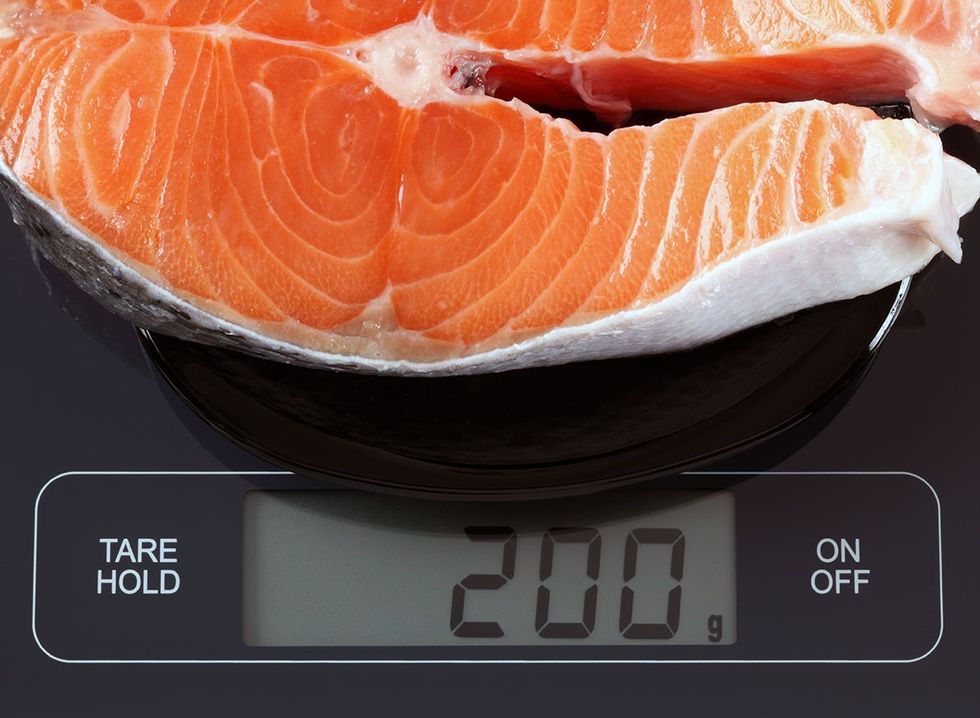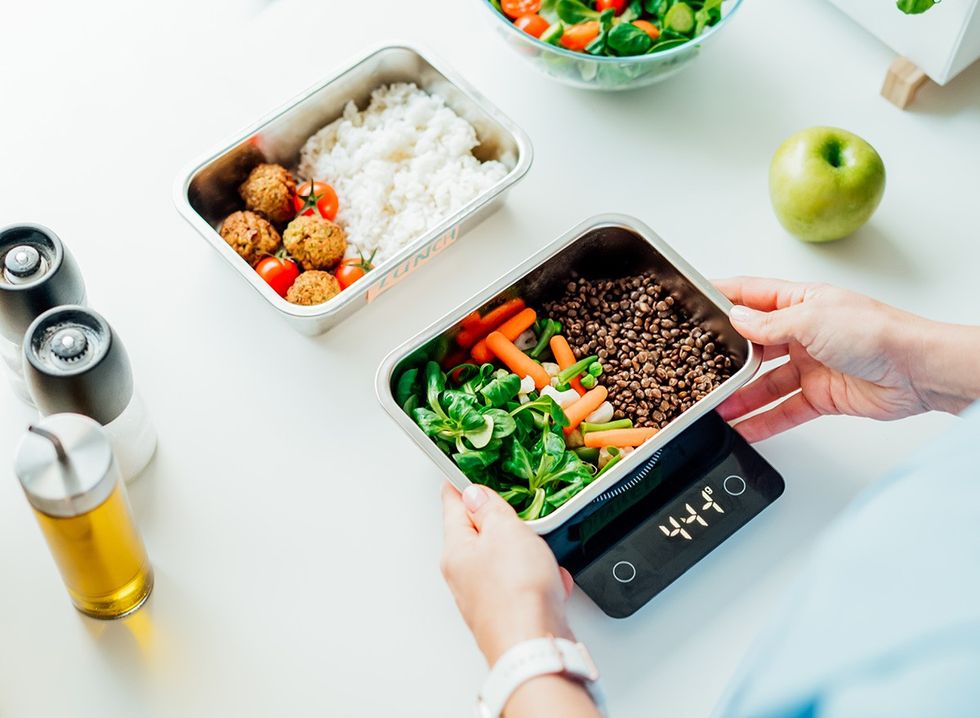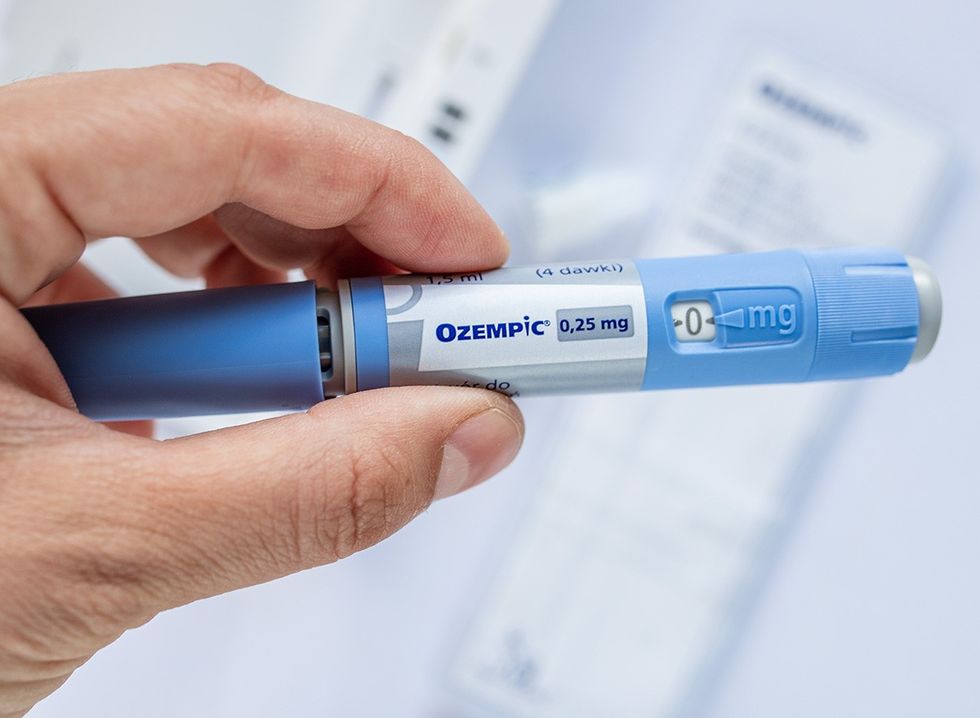Ever feel exhausted despite getting enough sleep? Notice your workouts taking longer to recover from? These could be your body's way of saying you need more protein. While severe protein deficiency is rare in developed countries, even mild insufficiency can impact your daily life and long-term health.
As a holistic health expert and former Olympic athlete, Dr. Sten Ekberg brings a unique perspective to nutrition and wellness. With his background in functional medicine and chiropractic care, combined with his experience as a Swedish national record holder in decathlon, he helps people understand their body's signals and optimize their health through proper nutrition.
Here are the key signs that might indicate you need more protein in your diet.
Your Muscles Are Sending Warning Signals

"Muscle-related issues are often the first sign of protein deficiency," says Dr. Ekberg in his post. He explains that weakness, slow recovery after workouts, and muscle cramps can all indicate low protein levels. "Your muscles are primarily made of protein. Without enough, you can't repair muscle fibers or regulate electrolytes properly, which can lead to cramping."
Wounds Take Longer to Heal

Protein plays a crucial role in healing. "Most tissue in your body is made up of protein," Dr. Ekberg notes. "When you're low on protein, wound healing can slow significantly because your body lacks the building blocks for repair."
Your Hair, Nails and Skin Are Suffering

"Keratin and collagen are the two main proteins that keep your hair, nails, and skin healthy," Dr. Ekberg explains. "Without adequate protein intake, your body can't produce enough of these structural proteins." Watch for weak, brittle nails, thinning hair, and dry, flaky skin – all potential signs of protein deficiency.
RELATED: Woman Lost 20 Pounds Without Doing Cardio: Here Are 9 Things She Did Instead
Digestive Issues Are Becoming Common

Most people don't realize that digestion relies heavily on protein. "Every digestive enzyme in your body is made from protein," Dr. Ekberg points out. "From the amylase in your mouth to the enzymes in your intestines, protein deficiency can compromise your entire digestive process."
You're Getting Sick More Often

"Your immune system depends heavily on protein," Dr. Ekberg emphasizes. "Antibodies that fight infection are actually large protein molecules. When you're low on protein, your body struggles to produce enough antibodies and white blood cells to maintain strong immunity."
Your Hormones Feel Out of Balance

Dr. Ekberg notes that many essential hormones – including insulin, growth hormone, and thyroid-stimulating hormone – are made of protein. "When protein levels drop, hormone production can be disrupted, affecting everything from your metabolism to your stress response."
Fatigue Has Become Your New Normal

"Protein deficiency can cause fatigue in two ways," Dr. Ekberg explains. "First, hemoglobin, the protein that carries oxygen in your blood, may decrease, leading to anemia. Second, the enzymes that regulate energy production require protein to function properly."
RELATED: 8 High-Protein Foods with Nearly Zero Calories That Melt Fat
Brain Fog Is Affecting Your Focus

Mental clarity can suffer when protein is low. "Your brain relies on protein-based neurotransmitters to function properly," says Dr. Ekberg. "Without enough protein, you might experience brain fog, difficulty concentrating, and mood changes."
Your Bones and Joints Are Weakening

"Many people are surprised to learn that bone is 30% protein," Dr. Ekberg reveals. "The protein matrix must be strong before calcium can properly mineralize it. Low protein intake can lead to weaker bones and joint problems over time."
You're Experiencing Fluid Retention

"Albumin, the most abundant protein in your blood, helps maintain proper fluid balance," Dr. Ekberg explains. "When protein levels drop, fluid can leak into surrounding tissues, causing swelling and puffiness, particularly around the ankles and knees."
How Much Protein Do You Really Need?

The daily protein requirement varies based on age, weight, and activity level. While the basic recommended dietary allowance is 0.8 grams of protein per kilogram of body weight, many experts now suggest this might not be enough, especially for older adults. Dr. Michelle Oppezzo, a nutrition expert, recommends "between 1.2 to 1.6 grams per kilogram of body weight for adults over 50, which is roughly double the federal recommendation." This higher intake helps maintain muscle mass and overall health as we age.
RELATED: 12 Everyday Food Swaps That Helped This Mom Drop 120 Pounds Without Feeling Hungry
Optimizing Your Protein Intake

Getting enough protein isn't just about the total amount – timing matters too. "Aim for 0.4 grams of protein per kilogram of body weight at each meal," Dr. Oppezzo advises. For a 165-pound person, this translates to about 30 grams of protein per meal. Research supports spreading protein intake across three daily meals, with 25-30 grams of high-quality protein at each sitting for optimal muscle health and nutrition.
Remember, while these signs might indicate protein deficiency, they could also stem from other causes. If you're experiencing any of these symptoms, consult with a healthcare provider for proper diagnosis and treatment. Focus on incorporating a variety of protein-rich foods into your diet and consider your individual needs based on your age, activity level, and overall health status. And if you enjoyed this article, take advantage of these 15 Quick Ways to Lose Body Fat Percentage in a Week.














 Shutterstock
Shutterstock Myth 1: Weight Gain Comes From Eating FatShutterstock
Myth 1: Weight Gain Comes From Eating FatShutterstock Start Your Day with 40 Grams ProteinShutterstock
Start Your Day with 40 Grams ProteinShutterstock Shutterstock
Shutterstock Shutterstock
Shutterstock
 Shutterstock
Shutterstock
 Shutterstock
Shutterstock Shutterstock
Shutterstock Shutterstock
Shutterstock Shutterstock
Shutterstock Shutterstock
Shutterstock

 Shutterstock
Shutterstock Shutterstock
Shutterstock Shutterstock
Shutterstock Shutterstock
Shutterstock Shutterstock
Shutterstock Shutterstock
Shutterstock

 Shutterstock
Shutterstock Shutterstock
Shutterstock Shutterstock
Shutterstock Shutterstock
Shutterstock Shutterstock
Shutterstock Shutterstock
Shutterstock Shutterstock
Shutterstock

 I'm a Nutritionist and These 9 High-Protein Snacks Keep My Clients Full While Losing 50 Pounds
I'm a Nutritionist and These 9 High-Protein Snacks Keep My Clients Full While Losing 50 Pounds
 Shutterstock
Shutterstock 2. Processed FoodsShutterstock
2. Processed FoodsShutterstock Shutterstock
Shutterstock Shutterstock/Prostock-studio
Shutterstock/Prostock-studio Shutterstock
Shutterstock Pro TipsShutterstock
Pro TipsShutterstock Shutterstock
Shutterstock Shutterstock
Shutterstock Shutterstock
Shutterstock Shutterstock
Shutterstock Don’t Drink as Much AlcoholShutterstock
Don’t Drink as Much AlcoholShutterstock Most Women on GLP-1s Are Making a Few Common MistakesShutterstock
Most Women on GLP-1s Are Making a Few Common MistakesShutterstock Soda and Sugary DrinksShutterstock
Soda and Sugary DrinksShutterstock Shutterstock
Shutterstock Eat BreakfastShutterstock
Eat BreakfastShutterstock And Improve Insulin SensitivityShutterstock
And Improve Insulin SensitivityShutterstock Belly Flab Strip Tip: Sugar and Fat Calories Leave Its Mark on Your BodyShutterstock
Belly Flab Strip Tip: Sugar and Fat Calories Leave Its Mark on Your BodyShutterstock Shutterstock
Shutterstock The Drugs Mimic the GLP-1 Hormone Naturally Produced by the BodyShutterstock
The Drugs Mimic the GLP-1 Hormone Naturally Produced by the BodyShutterstock 3. Deep-Fried ItemsShutterstock
3. Deep-Fried ItemsShutterstock